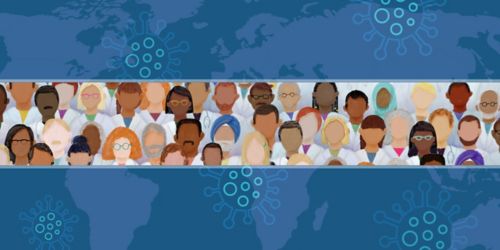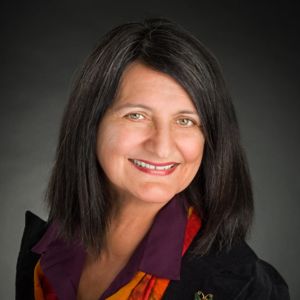St. Jude Family of Websites
Explore our cutting edge research, world-class patient care, career opportunities and more.
St. Jude Children's Research Hospital Home

- Fundraising
St. Jude Family of Websites
Explore our cutting edge research, world-class patient care, career opportunities and more.
St. Jude Children's Research Hospital Home

- Fundraising
Collaborating on SARS-CoV-2 and pediatric cancer

The Global COVID-19 Observatory and Resource Center for Childhood Cancer started out as a collaborative effort to help our colleagues and their patients. In a matter of weeks, it pivoted to become even more collaborative to help children everywhere who've been affected by childhood cancer and COVID-19.
As director of the St. Jude Global Infectious Diseases Program, I work closely with my team to raise the standard of care and prevention of infection, as well as collaborate with my international colleagues to improve the quality of infectious diseases research.
In late December, we began paying close attention to the emergence of a new disease, SARS-CoV-2, in Wuhan, China, because that’s what we do: we learn how to detect outbreaks and figure out what to do about them. It was a textbook scenario that could have come from one of our lessons.
Through our work in St. Jude Global, we also closely collaborate with our international partners. One of our education programs helps health care providers in other countries teach their colleagues infection prevention and control techniques. Little did we know that the teaching we were providing would soon become essential worldwide to keep patients, families and health care providers safe.
Everyone on the team has total dedication to global pediatric cancer. For us, working is a lifestyle.
Collaborating to learn about COVID-19
In mid-March, our annual two-week course on infection care and prevention began. The course attracted 24 clinicians from 14 countries. For the last two days of the session, we reviewed everything known about COVID-19. We reviewed the literature, organized in groups and wrote an early draft of summaries on how to care for pediatric cancer patients with COVID-19.
Those days were tense, and everyone had a sense of urgency to learn what to do about COVID-19. Most of the medical doctors were already holding telephone and e-mail conversations with their hospitals. We shared with them what little was known at the time. The course ended, and we said goodbye with the promise we would continue working on resources to help them in their home countries.
I continued working on a practical way to share information about SARS-CoV-2 and its possible impact on children with cancer. We knew that in many countries, in the early stages of the pandemic, people did not have access to informational materials in their language, so we translated the available presentations into multiple languages. However, it was clear that more was needed.
I told my team, “We need to prioritize. We need to figure out what to do with this information and how to get it to our colleagues around the world.”
Sharing our resources with the world
While we were working on the materials and translating the information into different languages, Carlos Rodriguez-Galindo, MD, St. Jude Global director, said, "We need to really put this information where we can share it with the rest of the world.”
Within weeks, we created The Global COVID-19 Observatory and Resource Center for Childhood Cancer. The website provides a pediatric cancer and COVID-19 registry, resource and collaboration space.
This was such a collaborative effort—not just within our infectious diseases group, but with all the areas of St. Jude Global, our partners and various networks around the world. It’s been absolutely amazing.
COVID-19 and childhood cancer
COVID-19 in childhood cancer patients is rare. Early evidence suggests that COVID-19 occurs in about 2% of pediatric cancer patients. We do not expect thousands of cases to be reported in the registry, that’s why it’s so important we capture as many cases as we can.
To illustrate, we’ve been having conversations with our colleagues from other countries every week. Just last week, one of our partners mentioned they have a case of COVID-19 in one of their childhood cancer patients. They will be putting that information into the registry. This information is going to help us to understand the impact of COVID-19 in children with cancer.
And this is only the beginning.
We will use the data collected to develop visuals, graphics and interactive maps. We will continuously update and add resources with seminars and the latest guidelines as we learn more about COVID-19. And, of course, the shared community will be key in all of this.
This project started out as a collaborative effort to help our colleagues and their patients. In a matter of weeks, we pivoted to make it even more collaborative so we can help every child everywhere who has been affected by childhood cancer and COVID-19.
As I reflect, an African proverb comes to mind: “If you want to go fast, go alone. If you want to go far, go together.”
We were originally aiming to help our 24 visiting colleagues, but with the support of the St. Jude family and our global collaborators, we are helping the world.






